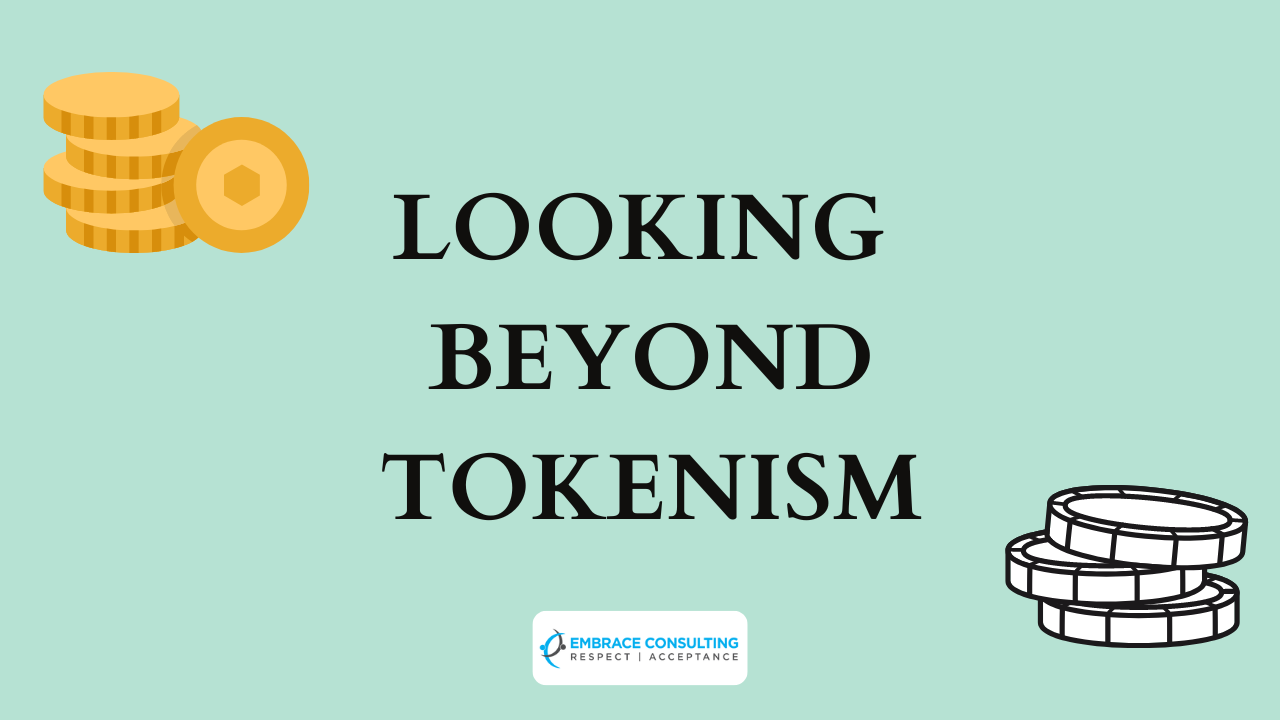In today’s society, diversity and inclusion have become hot topics of discussion. Many organizations and individuals strive to create an environment that embraces different perspectives and values diversity in all its forms. However, it is important to recognize that merely paying lip service to these ideals is not enough. Tokenism, the act of including individuals from underrepresented groups merely to give the appearance of diversity, is a real issue that needs to be addressed. In this blog post, we will explore tokenism, its impact on individuals and organizations, and how we can move beyond it to create a truly inclusive society.
The Problem with Tokenism
Tokenism can be defined as the practice of including one or a few individuals from an underrepresented group in order to give the illusion of diversity. While this may seem like a step in the right direction, it often does more harm than good. Individuals who are selected as tokens are burdened with the expectation to represent their entire group and may face added pressure to conform to the dominant culture. This not only puts undue stress on the token individual, but it also fails to address the systemic issues that lead to underrepresentation in the first place.
The Impact on Individuals and Organizations
Tokenism can have a profound impact on both individuals and organizations. For the token individual, it can lead to feelings of isolation, imposter syndrome, and a constant fear of not being able to live up to expectations. This can have long-lasting effects on their mental health and overall well-being.
On the organizational level, tokenism can hinder innovation and creativity. When individuals from underrepresented groups are marginalized, their unique perspectives and experiences are often overlooked. This lack of diversity can lead to a homogenous work environment where different ideas are not given a chance to flourish. In the long run, this can have negative consequences for the organization’s success and growth.
Moving Beyond Tokenism
To move beyond tokenism, organizations need to take meaningful actions to create an inclusive culture. Here are some steps that can be taken:
- 1. Prioritize Diversity and Inclusion: Organizations should make diversity and inclusion a top priority and embed it into their core values and mission statement.
- 2. Address Systemic Issues: It is important to identify and address the systemic barriers that prevent underrepresented individuals from accessing opportunities and advancing in their careers.
- 3. Create Safe Spaces for Dialogue: Organizations should create safe spaces where individuals can openly discuss issues related to diversity and inclusion without fear of retribution.
- 4. Provide Mentorship and Support: Offering mentorship and support programs can help underrepresented individuals build confidence, develop their skills, and navigate their careers.
- 5. Measure Progress: Regularly track and measure progress towards diversity and inclusion goals to ensure accountability and identify areas that need improvement.
Tokenism is a real issue that needs to be addressed in order to create a truly inclusive society. By moving beyond tokenism and embracing diversity and inclusion, organizations can benefit from a wider range of perspectives and experiences, leading to increased innovation, creativity, and overall success. It is up to all of us to challenge the status quo and work towards a more equitable and inclusive future.






